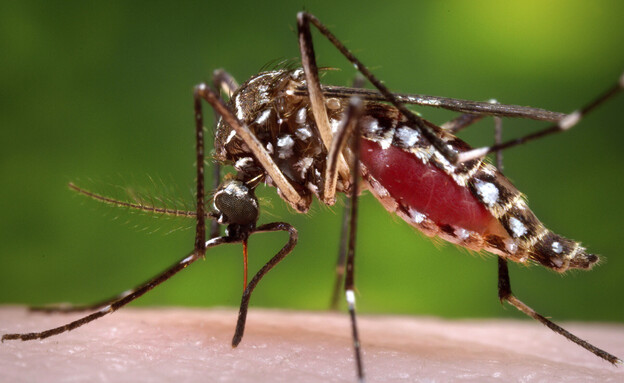The Ministry of Health has announced that several new patients have been diagnosed with fever in the central region of Israel, bringing the total number of cases to 19 since the beginning of May. Of these patients, 17 were admitted to hospitals, with three requiring ventilators.
To reduce exposure to mosquitoes, the Ministry recommends using mosquito repellents and accessories to keep them at bay in living spaces. They also advise turning on fans in resting areas. West Nile fever is a known issue in Israel, typically occurring between June and November. The risk of severe illness is higher among adults and immunocompromised individuals.
This year’s outbreak started earlier than usual, possibly due to climate changes worldwide. The humid weather in the central region may lead to increased mosquito reproduction. The Ministry conducts epidemiological investigations and collaborates with the Ministry of Environmental Protection for local pest control operations.
The disease is transmitted through mosquito bites during the summer and early autumn months. Symptoms include muscle aches, fever, headaches, weakness, and occasionally a rash. Complications such as neurological damage can occur in older adults or those with weakened immune systems. In severe cases, symptoms may include meningitis, brain inflammation, paralysis, and respiratory issues.
There is no specific treatment for West Nile fever, and no vaccine for prevention. Supportive care is provided to patients while monitoring for prolonged febrile illnesses, severe headaches, confusion, muscle weakness or difficulty walking is recommended. Patients experiencing these symptoms should seek medical attention promptly.
Prevention measures include using mosquito repellent and removing stagnant water sources where mosquitoes breed.
Overall West Nile fever can be dangerous but it can be prevented by taking precautions such as avoiding unnecessary travel outside your home country if there are high risk areas of infection or if you are pregnant or have a weakened immune system.



